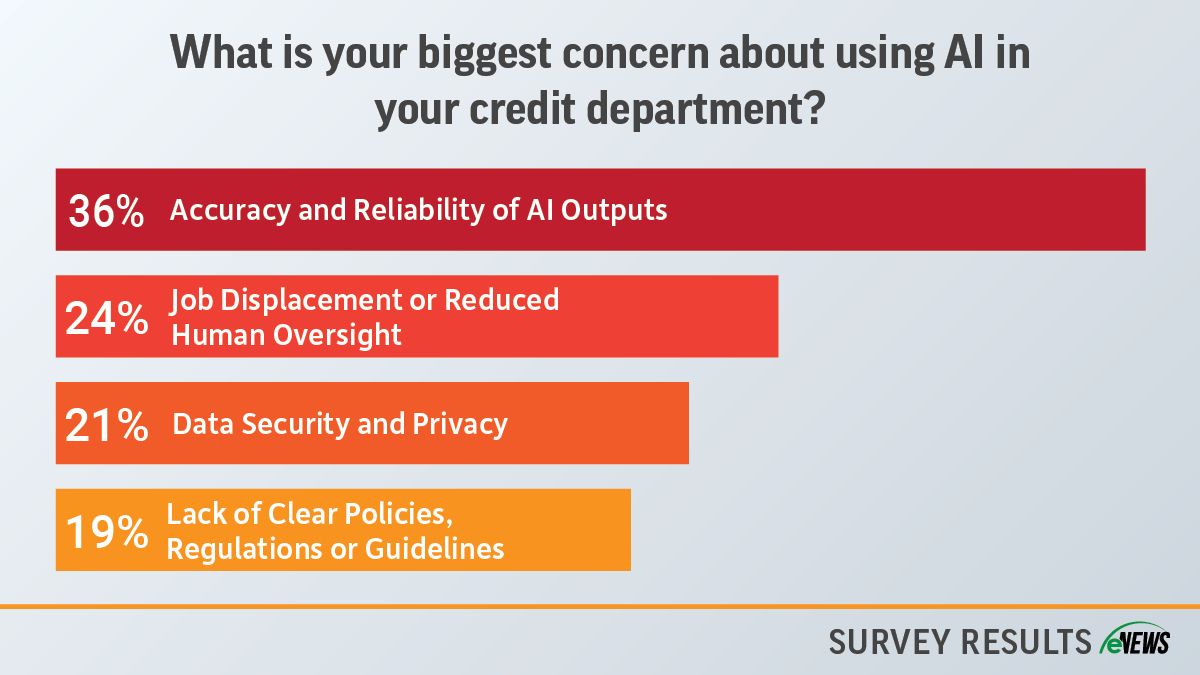Business Practices, eNews, Leadership
Is the four-day workweek the future of credit management?

The four-day workweek is making waves for its potential to boost productivity and improve work-life balance, but how does it stack up in the world of credit management?
By the numbers: Almost one-third of U.S. businesses are considering cutting their workweek down, according to a survey of CEOs by KPMG released in April.
Why it matters: Navigating the pros and cons of a four-day workweek could be key to leveraging this new work trend for smarter credit strategies and overall financial success.
Pros
#1 Increased productivity and engagement
According to some studies, shorter work weeks can increase employee productivity and engagement. They can offer more time to focus on financial planning and credit health. “Having an extra day off would contribute to better productivity because people have more time to rest and less commuting time,” said Kristin Farmer, credit and collections manager at HMI Glass (Louisville, KY).
A four-day workweek could be highly effective for credit professionals, especially with advancements in automation and technology. For instance, credit professionals can send out automated collection letters and past-due reminders when they are out of the office. “Even when you’re out, you can maintain regular communication with your customers,” said Leila Wolfe, CBA, credit supervisor at Fender Musical Instruments Corporation (Scottsdale, AZ). “Maybe you can allocate an extra hour during the weekend or one evening a week for work-related tasks. Ultimately, it depends on the individual’s preferences and lifestyle.”
#2 Better recruiting
A shorter workweek helps retain and attract talent, particularly among the newer generation of credit managers. Schedule flexibility appeals to newer employees or younger talent since they prioritize work-life balance. “I think a four-day workweek or any other flexible schedule that employers can offer is going to be a good thing for recruiting quality employees,” Farmer said. “It can also strengthen relationships and foster trust.”
#3 Improved work-life balance
A four-day workweek improves work-life balance by allowing more time for personal and family activities. “A four-day week can be effective in the credit world if implemented thoughtfully to ensure business needs are met,” said Alisha Gray, purchasing manager at Orgill Inc. (Collierville, TN). “Knowing there is a day to get important things done without interfering with the work schedule brings a small piece of mind that is valuable to workers.”
#4 Improved health
Credit management requires constant availability and tough decision-making, creating a high-stress environment that affects employees’ health. Reduced work hours can improve overall health, lowering work-related stress and anxiety. In fact, a 2022 U.K. Four-Day Week Pilot report revealed that when workers shifted to four-day workweeks (typically Monday through Thursday, while still earning full pay), they experienced measurable reductions in their levels of burnout, stress, anxiety, fatigue and sleep problems. “A four-day workweek would improve work-life balance and general well-being for credit professionals, especially since you’re consistently interacting a lot with people,” said Leon Zhang, credit operations manager at SRS Distribution Inc. (McKinney, TX).
#5 Streamlining international trade
In the U.S., most time zones need to work earlier to interact with global customers. “But if you’re unavailable on a day where they need to help to mitigate a disaster, that could be a detriment to your organization,” Wolfe said.
Cons
#1 Disrupting operations
What works for one organization or industry does not work for another. Eliminating a workday can significantly disrupt or delay operational processes. Industries challenged by a four-day workweek include:
- Healthcare. Hospitals require 24/7 availability, complicating reduced hours.
- Emergency services. Police and fire departments need full-time coverage.
- Retail. Shorter weeks reduce operating hours, which would then impact sales.
- Hospitality. Hotels and restaurants operate beyond standard hours.
- Manufacturing. Halting production lines frequently would reduce efficiency.
- Transportation and logistics. Consistent delivery schedules are essential for business continuity.
#2 Difficult transition
While a shorter workweek can offer more time to focus on financial planning and credit health, it might also come with challenges such as adjusting income and managing tighter schedules. “Transitioning to a shorter workweek will likely be difficult because people aren’t used to having to condense work into four days,” Zhang said. “Are you condensing five days into four, or just working four days with fewer hours? If so, you’re thinking, am I being paid less?”
#3 Complicate global trade
A reduced workweek may affect international trade credit due to discrepancies in operational schedules and time zones across different countries. In India, the manufacturing sector often operates six or seven days a week to manage inventory, which could conflict with a U.S.-based credit professional’s four-day schedule. “A four-day workweek could have a negative impact on working with international customers if all international workers are off the same day,” Gray said. “It could add to delays especially when there is a large time zone difference which already puts customers a day ahead in terms of business operations.”
The bottom line: The four-day workweek is a growing trend with significant potential to boost productivity and enhance work-life balance. While it can offer more time for financial planning and leverage new technologies for efficient operations, it also presents challenges like income adjustments and potential disruptions in global trade.





